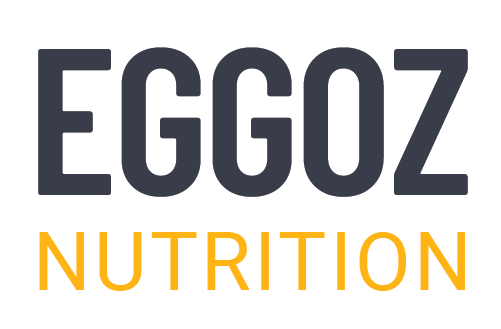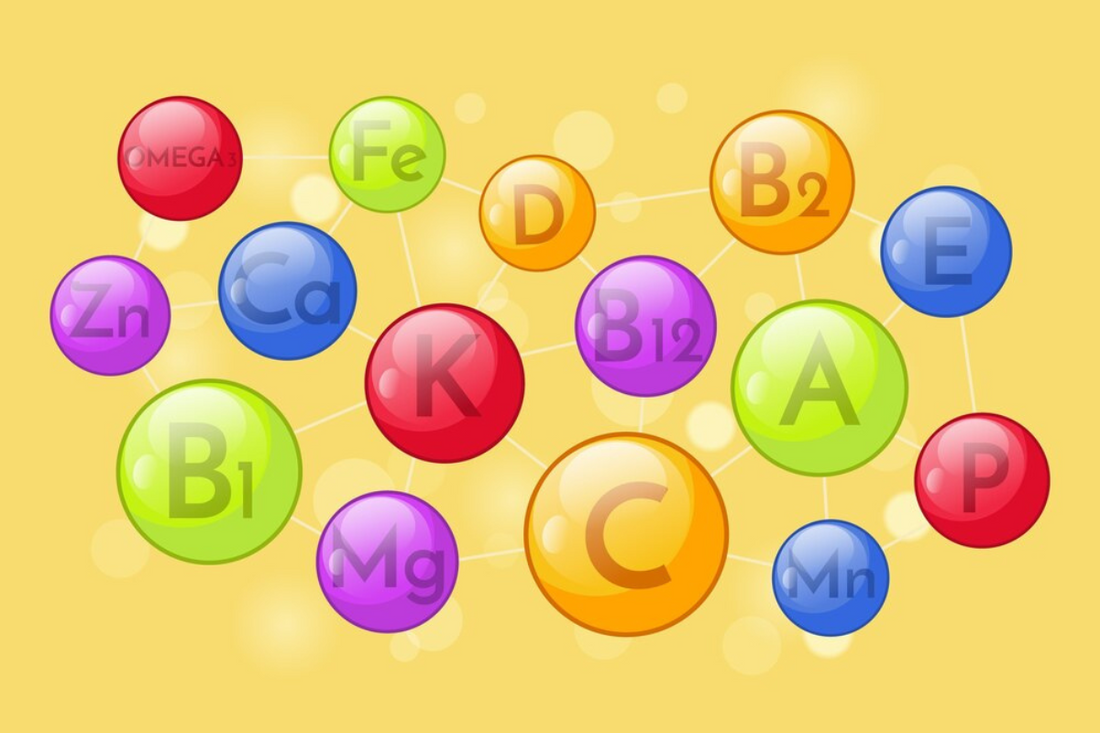Key Facts
- Approximately 2 billion people globally suffer from micronutrient deficiencies, often called "hidden hunger".
- Vitamin D deficiency alone impacts 1 billion individuals, leading to issues like weak bones and reduced immunity.
- Vitamin A deficiency is the greatest cause of avoidable blindness in children and raises the risk of devastating illnesses like diarrhoea and measles.
- Watermelon and cucumbers are crucial for hydration and nutritional absorption. 20% of daily water consumption comes from meals, aiding nutrition absorption and digestion.
- Vitamins come from plants and animals, whereas minerals come from soil and water.
Maintaining a healthy lifestyle requires understanding what nutrition the body needs. Vitamins and minerals differ in structure, function, and source but are generally classed together due to their diet necessity. Minerals come from the ground, while vitamins come from living things. This blog examines sources of vitamins, the significance of minerals, their functions in the body, and strategies to maintain a balanced intake through various food sources.
Difference Between Vitamins and Minerals:
Vitamins
Vitamins enable several metabolic reactions in the body. Nutrients are water-soluble or fat-soluble. Vitamin C and the B-vitamin complex, which dissolve in water, must be replenished by diet. Foods high in vitamins such as A, D, E, and K are stored in the liver and fatty tissues and absorbed with fat. Different vitamins serve different purposes. For example, Vitamin A aids vision and immunity, Vitamin D aids bone health by absorbing calcium, and Vitamin E offers antioxidant protection.
Minerals: Health Basis
Minerals—unlike vitamins—are inorganic elements in soil and water. People eat plants and animals that absorb them. Trace minerals like zinc, iron, and selenium and macrominerals like calcium, magnesium, and potassium are mineral types. For bone density, fluid balance, and nerve function, macrominerals are needed in higher proportions. Functions of minerals in the body include turning food into energy, repairing tissues, and boosting the immune system, promoting overall health.
What are the symptoms of vitamin and mineral deficiency?
Some vitamins and minerals in food might cause symptoms, depending on the nutrient. Some common signs of poor nutritional consumption are:
- Tiredness: Vitamin B12, which is needed to make red blood cells, and iron, which causes anaemia, can induce chronic fatigue and poor energy.
- Joint Pain and Fragility: Insufficient calcium or Vitamin D can weaken bones, causing osteoporosis, a fracture-prone condition.
- Hair, Skin, Nails Issues: Thinning hair, brittle nails, and acne or dermatitis can result from zinc or biotin deficiency.
- Weak Immune System: Lack of Vitamin C, an immune-boosting antioxidant, or Vitamin E, which protects cells from oxidative damage, reduces infection resistance.
- Neuro-issues: Muscle cramps, tingling, and sadness can result from magnesium and Vitamin B6 deficiencies.
Identifying these symptoms early and addressing them with a balanced diet or vitamins and minerals supplements is essential for long-term health. A to Z vitamin tablets can also help cover gaps in nutrient consumption.
Key Differences Between Vitamins and Minerals
Below is a detailed table that highlights these distinctions:
|
Aspect |
Vitamins |
Minerals |
|
Definition |
Organic compounds are essential for metabolic processes. |
Inorganic elements are crucial for bodily functions. |
|
Source |
Found in plants, animals, and fortified foods. |
Found in soil, and water, and consumed by plants/animals. |
|
Types |
Water-soluble (e.g., Vitamin C) and fat-soluble (e.g., Vitamin D). |
Macrominerals (e.g., calcium) and trace minerals (e.g., iron). |
|
Stability |
Can be destroyed by heat, light, or air during cooking. |
Stable under heat and cooking conditions. |
|
Function |
Support metabolic activities like energy production. |
Maintain structural roles and biochemical processes. |
Top 5 Vitamin- and Mineral-Enriched Food Items
Balanced, nutrient-rich diets are one of the best strategies to meet vitamin and mineral needs. Energy production, immunological defence, and overall wellness require vital nutrients. Many daily foods are adaptable, tasty, and rich in vital nutrients.
1. Eggs: Nature's Multivitamin
One of the most comprehensive and diverse foods is eggs. Eggs are known as "nature's multivitamin" due to their abundance of vitamins and minerals. Vitamin A, which boosts vision and immunity, and Vitamin D, which helps bones and teeth absorb calcium, are found in eggs. In addition to vitamins, eggs include antioxidants selenium and phosphorus, which strengthen bones and teeth. Vitamins and minerals in eggs contribute significantly to their reputation as a superfood. They go into salads, sandwiches, and desserts, whether boiled, scrambled, poached, or fried.
2. Nutrient-dense spinach
A powerhouse of nutrients, spinach provides a rich array of vitamins and minerals in food that benefit nearly every bodily function. It's rich in Vitamin A, which is beneficial for vision and skin, and Vitamin C, which enhances immunity and collagen. Vitamin K in spinach strengthens bones and coagulates blood. Considering foods with minerals, spinach contains iron, calcium, and magnesium, which are helpful for blood oxygenation, bone health, and neuronal and muscle function. The benefits of spinach include its culinary diversity. Eat it raw in salads, smoothies, sautés, soups, and stews.
3. Salmon
Salmon is a nutrient-dense fish that is an excellent source of vitamins and minerals in food, along with healthy fats. Vitamin D helps absorb calcium and grow bones, and Vitamin B12 supports neuronal function and red blood cell development. Omega-3 fatty acids in salmon improve heart, brain, and inflammatory health. It contains iodine for thyroid function and selenium for cell protection. You can use salmon in any meal due to its versatility. Use in sushi, salads, grilling, baking, and smoking.
4. Sweet Potatoes: Vitamin-Rich Carbs
Root vegetables like sweet potatoes are colourful and healthy. Sweet potatoes are a valuable addition to the list of foods with minerals, as their beta-carotene content supports vision, skin, and immunological function by converting them into retinol. Sweet potatoes contain potassium, which regulates blood pressure and fluid balance, and vitamin C, which enhances the immune system and improves wound healing. You can mash, stew, casserole, or use sweet potatoes in soups.
5. Small Nutritional Powerhouses: Nuts and Seeds
Seeds like almonds, sunflower seeds, and flaxseeds are nutritious despite their size. They are rich in vitamin E, an antioxidant that protects cells and skin. They contain magnesium, which aids over 300 biological reactions, zinc, and healthy fats that improve immunity and cardiovascular health. Their nutrient profile aligns with any vitamins and minerals list, making them a perfect choice for maintaining balanced nutrition and supporting specific needs, such as vitamins and minerals for hair growth.
Nutritional items can be snacked, added to salads, or mixed into smoothies. Almonds are creamy, and sunflower seeds are crunchy.
Conclusion
Vitamins and minerals have complementary roles and are essential to health. Inorganic minerals provide structure and biochemistry, whereas vitamins govern metabolism. Either deficit can cause fatigue, compromised immunity, bone deformities, and neurological issues. A balanced diet, including Eggoz eggs, provides vitamins and minerals for maximum health. Understanding the differences between these two nutrients and detecting deficits can enhance health and prevent long-term difficulties.


